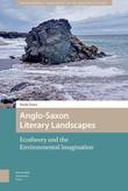Explore

Literary scholars have traditionally understood landscapes, whether natural or manmade, as metaphors for humanity instead of concrete settings for people's actions. This book accepts the natural world as such by investigating how Anglo-Saxons interacted with and conceived of their lived environments. Examining Old English poems, such as Beowulf and Judith, as well as descriptions of natural events from the Anglo-Saxon Chronicle and other documentary texts, Heide Estes shows that Anglo-Saxon ideologies which view nature as diametrically opposed to humans, and the natural world as designed for human use, have become deeply embedded in our cultural heritage, language, and more.
This book is included in DOAB.
Why read this book? Have your say.
You must be logged in to comment.
Rights Information
Are you the author or publisher of this work? If so, you can claim it as yours by registering as an Unglue.it rights holder.Downloads
This work has been downloaded 159 times via unglue.it ebook links.
- 56 - pdf (CC BY-NC-ND) at OAPEN Library.
Keywords
- Anglo-Saxon studies
- Ecocriticism
- Ecotheory
- Environmental Studies
- Literary theory
- Literature & literary studies
- Literature: history & criticism
- Old English language and literature
- thema EDItEUR::D Biography, Literature and Literary studies::DS Literature: history and criticism::DSA Literary theory
Links
DOI: 10.5117/9789089649447Editions

